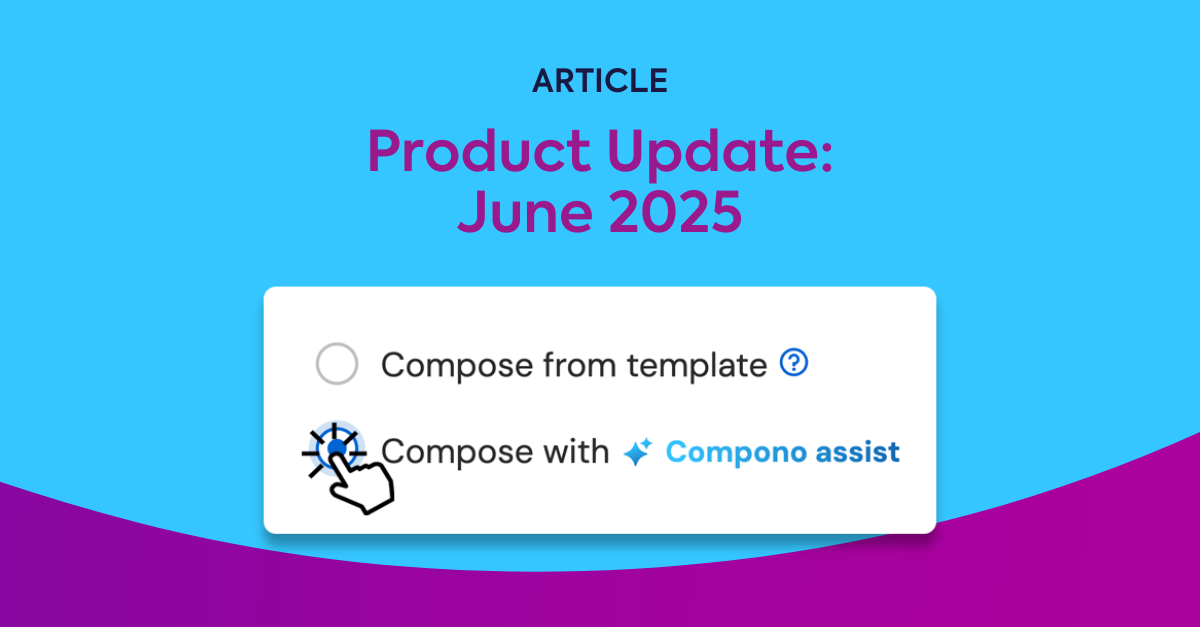Unlocking Recruitment Efficiency with an ATS Tool
For HR professionals, staying ahead in today’s competitive job market means more than just posting vacancies and waiting for applications. It’s...
Become the expert on delivering
valid and fair assessments for
your training and education.
Hire
|
Engage
|
Develop
|
|
Automatically match to candidates who are a great fit for your team culture and who are intrinsically motivated to succeed. |
Deeply understand your organisation with science-backed analytics on your culture, team design, and engagement. |
Back your onboarding, compliance and skill development with industry-leading credentialling, competency and capability expertise.
|
Hey Compono helps you understand your personality and how to turn it into your superpower.
First 1,000 users get 10 minutes free.
Just $15 a month after that — cancel anytime.

Job interviews can feel a bit like navigating a maze. You’ve prepped your résumé, polished your LinkedIn profile, and now… the interview questions start firing. But here’s the good news – with a little strategy, there’s a way to turn these daunting questions into an opportunity to shine.
Interviews aren’t about rapid-fire quizzes or repeating what's on your CV. They’re a chance for employers to understand you beyond your job history. They want to see how you think, solve problems, and mesh with their team. And for you, it’s a chance to show why you’re not just a great hire but the right hire.
We’re here to help you crack the code on answering like a pro, with tips, insights, and a look at how Compono’s people-data expertise can shift the hiring odds in your favour.
Here’s the secret about those questions – they’re not filler. Every question has a purpose. Employers aren’t only checking if you can do the job; they’re exploring how you’ll fit in with their team and their culture.
For instance, behavioural questions like “Tell me about a time you handled failure” are designed to reveal how you think and react under pressure. No fluff here – it’s about skills and mindset. Research shows that structured interviews (where employers ask every candidate the same thoughtful set of questions) increase hiring accuracy by up to 50%.
Beyond checking technical know-how, hiring managers are laser-focused on cultural alignment. Why? Because employees who align well with their organisation’s culture tend to stick around longer, collaborate better, and contribute more effectively. That’s where Compono Engage comes in. It unlocks real cultural insights, helping companies find candidates whose values sync with their own.
Candidate pro-tip: Prepare for behavioural interview questions with the STAR method (Situation, Task, Action, Result). It helps keep your answers clear and relevant.
This question. It’s straightforward and yet a stumbling block for many. Why? Because it’s easy to ramble or come across as robotic. Instead, think of it like storytelling. When someone asks you to “Tell me about yourself,” they want to know where you’ve been, what you’re doing now, and where you’re heading.
Follow this format:
Take this example from Luli, an HR professional with years of experience in employee engagement. She says, “I’ve spent my career designing frameworks to boost workplace satisfaction, cutting turnover by up to 15%. I’m driven to bring those skills to a culture-focused company like yours.”
See what’s happening here? It’s concise, focuses on value, and ties directly into the organisation’s purpose.
Practice telling your story until it flows naturally. And don’t forget – it’s not just about sounding polished. It’s about sounding like you.
Here’s where the homework pays off. When someone asks why you want to work for them, they’re not expecting you to recite their website’s “About Us” page. They’re checking whether you’ve done your research and, more importantly, if your values align with theirs.
What they want to hear is:
For example, you might say, “I admire your leadership in sustainable practices, and my experience in eco-friendly project management could help take your environmental goals even further.”
The best part? Doing this prep helps you feel more confident about the company and the role you’re applying for. It’s a win-win.
And remember – companies using Compono Hire get the tools to identify candidates who match their values. These personalised insights help both sides find the right fit faster.
Recruitment fact: Employees who culturally align with their companies are 24% more likely to stay. Think of it as finding your long-term team, not just landing a job.
When asked about your strengths and weaknesses, it’s tempting to oversell or dodge the question. Instead, aim for honesty with a purpose.
For strengths:
Go beyond generic answers like “I’m a hard worker.” Share a tangible example. “I thrive in project management. For example, I ran a cross-functional team to deliver X project, hitting our goals two weeks early.”
For weaknesses:
Choose something real but not role-breaking. Then, focus on how you’re improving. “I used to find public speaking nerve-wracking, but I’ve built confidence by presenting at team meetings and smaller client sessions.”
This approach humanises you, and interviewers respect candidates who show self-awareness.
And in workplaces using Compono’s Engage module, tools like personality assessments help managers see how your strengths and growth areas can complement their teams. It’s data-backed hiring at its best.
Great interviews are a two-way conversation, not an interrogation. When they wrap up with, “Do you have any questions for us?” don’t skip it. This is your time to shine.
Ask questions like:
Not only does this show genuine interest; it’s a chance to confirm the role fits who you are and what you need.
Don’t just prepare. Prepare with focus. You’ve now got tools like the STAR method, tips for crafting an unforgettable personal narrative, and a better understanding of why cultural alignment matters. With these, you’ll walk into interviews with confidence, clarity, and charm.
If you want to explore how Compono can unlock smarter recruitment, start here:
Your next opportunity is closer than you think. Prepare with purpose, and make it yours.

For HR professionals, staying ahead in today’s competitive job market means more than just posting vacancies and waiting for applications. It’s...

Hiring the right person isn’t just about filling a vacancy; it’s about building a team that clicks. Whether you’re a recruiter refining your hiring...

Follow our monthly product updates as we share the latest features to help you strategically design and develop teams and the work environment. ...